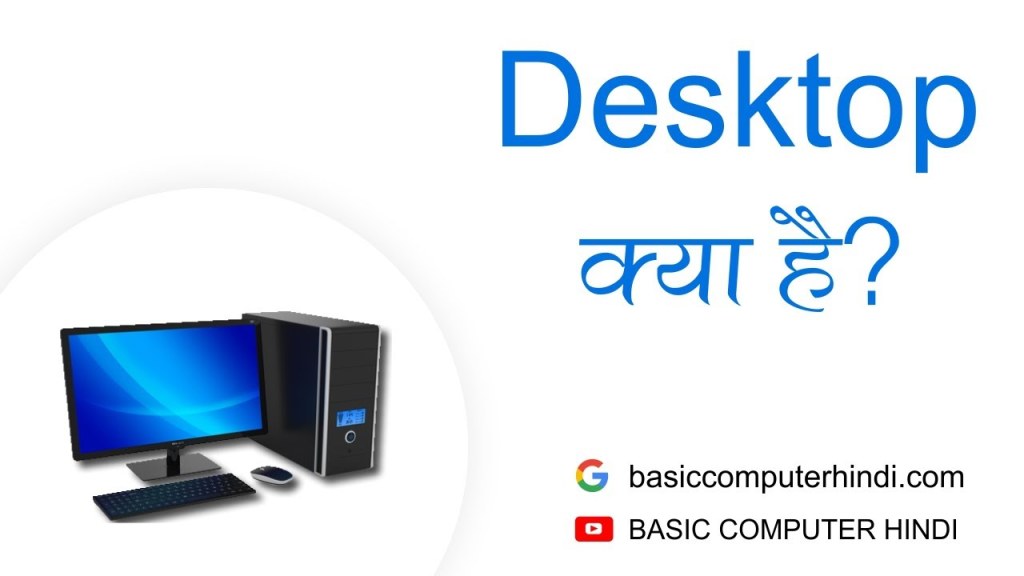What is a Desktop Computer?
Overview
Greetings, Readers! Today, we are going to delve into the world of desktop computers, also known as personal computers (PCs). In this article, we will explore the various aspects of desktop computers, including their definition, history, advantages, disadvantages, and frequently asked questions. So, let’s get started and discover more about the fascinating world of desktop computers!
Introduction
Definition
A desktop computer is a personal computer designed to be used at a desk or workstation. It typically consists of a monitor, a keyboard, a mouse, and a system unit that houses the central processing unit (CPU), memory, storage, and other components. Unlike portable laptops or tablets, desktop computers are stationary and provide more power, storage, and customization options.
History
The concept of desktop computers originated in the 1970s when the microprocessor was introduced. The first commercially successful desktop computer, the IBM Personal Computer (IBM PC), was released in 1981. Since then, desktop computers have evolved significantly, becoming more affordable, compact, and powerful. Today, they are widely used for various purposes, including work, gaming, and entertainment.
Components
A desktop computer consists of several key components. The monitor displays visual output, while the keyboard and mouse allow users to input commands and navigate the system. The system unit, also known as the CPU tower or desktop case, houses the internal components, including the CPU, memory modules, storage drives, and expansion slots for additional peripherals. Other peripherals such as speakers, printers, and webcams can be connected to the desktop computer as well.
Operating Systems
Desktop computers can run different operating systems, such as Microsoft Windows, macOS, and Linux. The operating system serves as the interface between the user and the computer, allowing users to perform tasks, run applications, and manage files. Each operating system has its own advantages and user interface, catering to different needs and preferences.
Uses

Image Source: i2.wp.com
Desktop computers are versatile devices used for various purposes. They are commonly used in offices, schools, and homes for tasks such as word processing, spreadsheet management, graphic design, programming, and internet browsing. They also serve as powerful gaming machines, capable of running graphically demanding games. Additionally, desktop computers can be used for multimedia editing, video rendering, and data analysis, thanks to their processing power and storage capacity.
Advantages and Disadvantages
Like any technology, desktop computers have their pros and cons. Let’s take a closer look at these:
Advantages:
1. Power and Performance: Desktop computers offer more processing power and performance compared to laptops or tablets, making them ideal for demanding tasks.
2. Customizability: Desktop computers can be easily customized and upgraded, allowing users to tailor their systems according to their specific needs.

Image Source: ytimg.com
3. Large Storage Capacity: Desktop computers often have more storage options, including multiple hard drives or solid-state drives, offering ample space to store files, applications, and multimedia content.
4. Ergonomics: Desktop setups allow for better ergonomics, with adjustable monitors, keyboards, and mice that promote comfortable usage over extended periods.
5. Cost-Effective: Desktop computers generally offer better value for money compared to laptops, providing higher specifications at a lower price point.
Disadvantages:
1. Lack of Portability: The primary disadvantage of desktop computers is their lack of portability. They are not designed to be easily transported and are generally confined to a single location.
2. Space Requirements: Desktop computers require dedicated desk space and can occupy more room compared to laptops or tablets.
3. Power Consumption: Desktop computers tend to consume more power than their portable counterparts, resulting in higher electricity bills.
4. Initial Setup: Setting up a desktop computer may require additional components such as a monitor, keyboard, and mouse, which can add to the initial cost.
5. Limited Battery Backup: Unlike laptops or tablets, desktop computers do not have built-in battery backup, making them vulnerable to power outages.
FAQ (Frequently Asked Questions)
1. Can I upgrade the components of a desktop computer?
Yes, one of the advantages of desktop computers is their ability to be easily upgraded. You can add more memory, replace the CPU, or upgrade the graphics card to improve performance.
2. Should I choose a desktop computer or a laptop?
The choice between a desktop computer and a laptop depends on your specific needs. If portability is not a priority and you require more power and customization options, a desktop computer might be the better choice. However, if mobility is important or you need to work on the go, a laptop would be more suitable.
3. How long does a desktop computer typically last?
The lifespan of a desktop computer can vary depending on usage and maintenance. On average, a well-maintained desktop computer can last for around five to eight years before requiring major upgrades or replacement.
4. Are desktop computers more secure than laptops?
Desktop computers and laptops both have their own security measures. However, desktop computers generally have a lower risk of theft due to their stationary nature. Additionally, they can be equipped with additional security features such as biometric scanners or cable locks.
5. Can I use a desktop computer for gaming?
Yes, desktop computers are widely used for gaming due to their power, performance, and customization options. They can handle graphically demanding games and provide a better gaming experience compared to laptops or consoles.
Conclusion
In conclusion, desktop computers are powerful and versatile devices that have evolved over time. They offer superior performance, customization options, and storage capacity compared to laptops or tablets. However, they lack portability and require dedicated desk space. Ultimately, the choice between a desktop computer and other devices depends on your specific needs and preferences. Regardless of your choice, desktop computers continue to be an integral part of our digital lives, providing us with the tools and capabilities to work, create, and connect in today’s technology-driven world.
Final Remarks
Dear Readers, thank you for joining us on this exploration of desktop computers. We hope this article has provided you with valuable insights into the world of desktop computers, their advantages, disadvantages, and frequently asked questions. Remember to consider your individual needs and preferences when choosing a computer, and always stay updated with the latest advancements in technology. Until next time, happy computing!